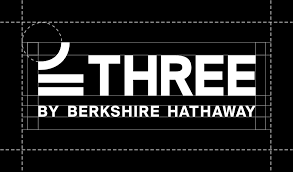Commercial insurance Arizona
The Complete Guide to Commercial Insurance in Arizona: Securing Your Business' Future

As a small business owner in Arizona, navigating the landscape of commercial insurance can be daunting. With myriad options available and various state-specific regulations to comply with, it’s crucial to understand the ins and outs of commercial insurance in the Grand Canyon State.
This guide, “Commercial Insurance Arizona Targeting Small Business Owners in Arizona,” aims to provide comprehensive information on the types of commercial insurance available, mandatory insurance requirements, cost factors, top insurance providers, the claims process, coverage limits, and specific requirements for businesses contracting with the state. By understanding these aspects, you can effectively make informed decisions to protect your business, assets, and employees.
What is Commercial Insurance?
Commercial insurance is a type of insurance that provides coverage for businesses and their assets against risks such as property damage, liability claims, and employee injuries. It is designed to protect businesses from financial losses due to unforeseen events. Commercial insurance policies can be customized to meet the specific needs of a business, and they typically include a combination of coverage options.
Types of Commercial Insurance Policies Available in Arizona
In Arizona, small businesses have various commercial insurance options to protect against various risks. Here are some of the key types:
**General Liability Insurance**: This is the most common business insurance coverage, protecting businesses against incidents such as customer slips and falls, natural disasters, and employee injuries. It can cover expenses that might be difficult to overcome without insurance.
**Commercial Auto Insurance**: This insurance is required for all business vehicles in Arizona. It covers liabilities, collisions, comprehensive medical payments (or personal injury protection), and uninsured motorists. Commercial auto policies usually offer higher coverage limits than personal policies because business vehicles require more excellent protection in the event of accidents.
**Workers’ Compensation Insurance**: Under Arizona law, employers must secure employee workers’ compensation insurance. This insurance is a “no-fault” system in which an injured employee is entitled to receive benefits for an industrial injury, no matter who caused the job-related accident.
**Business Owners Policy (BOP)**: A BOP bundles commercial property insurance and general liability coverage in one plan. It’s often the most cost-effective type of commercial insurance for an Arizona business.
**Professional Liability Insurance**: Also known as errors and omissions insurance (E&O), this coverage is standard with professional services in Arizona. It helps pay for client lawsuits related to professional services.
**Cyber Insurance**: Cyber insurance has become crucial with the increasing prevalence of digital operations and online transactions. It protects businesses from financial losses resulting from cyber threats or data breaches.
Each type of insurance provides different coverage, and the specific needs of a business can significantly influence the type and amount of insurance required. Small business owners must understand these options and choose the best fit for their business needs.
How to Choose the Right Commercial Insurance Policy for Your Business
Choosing the right commercial insurance policy for your business is crucial to protect your assets and mitigate risks. Here are some tips to help you choose the best commercial insurance policy for your business and avoid common mistakes:
Assess Your Risks: Identify your business’s risks and the types of coverage you need. Consider the size of your business, industry, and the assets you must protect.
Work with an Independent Insurance Agent: Independent insurance agents work for you, not the insurance companies. They can help you find the best policies for your business at the most reasonable cost. They can also explain precisely what a policy offers and tailor your coverage to your needs.
Choose the Right Insurance Provider: Choose an insurance provider with a good reputation and a track record of paying claims promptly. Research insurance providers online or ask for recommendations from other business owners.
Review Coverage Regularly: Businesses change, and so do insurance needs. Review your coverage regularly and update your policies to avoid insurance gaps and spending money on coverage that no longer serves your needs.
Understand the Exclusions and Limitations of Your Policy: Make sure you understand the exclusions and limitations of your policy. Ask your independent insurance agent to explain any terms or conditions you don’t understand.
Why choose Blake Insurance Group your local commercial insurance agency
Blake Insurance Group is a local commercial insurance agency providing personalized home, auto, business, and more insurance solutions. Here are some reasons why you should choose Blake Insurance Group as your local insurance agency:
Experienced Team: Blake Insurance Group has an experienced team that works with major insurance companies like Progressive, Safeco, and UnitedHealth Insurance to find the best coverage for your needs.
Personalized Service: Blake Insurance Group is committed to treating each individual with respect and compassion and maintaining peace of mind, knowing their insurance professionals have your back.
Independent Agency: Blake Insurance Group is independent, which means they work for you, not the insurance companies. They can offer expert advice on local requirements and gather multiple quotes to help you find the right coverage at the right price.
No Broker Fees: Blake Insurance Group does not charge broker fees, which means you can have confidence in knowing that you are getting the best possible value for your insurance dollar and the right coverage to protect your assets and financial well-being.
Wide Variety of Products: Blake Insurance Group provides various insurance products, such as auto, boat, travel trailer, motorcycle, RV, business auto, personal auto, commercial liability, and lessors’ risk policies.
Common Mistakes to Avoid When Buying Commercial Insurance
Choosing the Cheapest Policy: Don’t choose the cheapest policy without considering the coverage and limitations. You get what you pay for when it comes to most things, and business insurance is no exception.
Not Taking Time to Read the Policy: Read the policy details carefully before buying to ensure you get the necessary coverage. Ask your independent insurance agent to explain any terms or conditions you don’t understand.
Failing to Insure Potential Income Losses: Consider the potential income losses your business could face due to unforeseen events and make sure you have the appropriate coverage.
Staying with the Same Insurer Too Long: Don’t be afraid to shop around if your insurance premiums are climbing too high. Find insurance companies and policies that suit your needs.
Not Updating Your Insurance Company on Business Changes: Update your insurance company on any changes to your business to avoid insurance gaps and spending money on coverage that no longer serves your needs.
Insurance Requirements for Small Businesses in Arizona
In Arizona, small businesses are required by law to have certain types of insurance.
**Workers’ Compensation Insurance**: Arizona state law mandates that all businesses that regularly employ at least one employee, full-time or part-time, must carry workers’ compensation insurance. This insurance is a “no-fault” system in which an injured employee is entitled to receive benefits for an industrial injury, regardless of who caused the job-related accident. Some exceptions exist to this requirement, including independent contractors, casual or occasional workers, and domestic workers who are only employed in a home.
**Commercial Auto Insurance**: All business-owned vehicles in Arizona must be covered by commercial auto insurance. The state law requires all commercial auto policies to have a minimum liability limit of $25,000 per person, $50,000 per accident for bodily injury, and $15,000 for property damage. Depending on the type of vehicle and its use, businesses may need to carry higher limits.
Failure to comply with these insurance requirements can result in significant financial and criminal penalties. Therefore, small business owners in Arizona must understand these requirements and ensure they have the necessary coverage to protect their business and comply with state laws.
Cost of Commercial Insurance in Arizona
In Arizona, commercial insurance costs vary depending on the type of insurance and several other factors. Here are some average costs for different types of commercial insurance:
**General Liability Insurance**: The average cost of general liability insurance for small businesses in Arizona is around $42 per month. However, a typical small business can expect to pay between $300 and $5,000 annually for their general liability policy.
**Commercial Auto Insurance**: Arizona’s average commercial auto insurance cost is about $147 per month. For commercial truck insurance, the average cost is around $12,418 annually.
**Workers’ Compensation Insurance**: The average cost of workers’ compensation insurance for small businesses in Arizona is approximately $39 per month.
**Professional Liability Insurance**: The average cost of professional liability insurance, also known as Errors and Omissions (E&O) insurance, for small businesses in Arizona, is around $59 per month.
**Commercial Property Insurance**: The average cost of commercial property insurance is around $63 per month. However, the cost can vary significantly based on factors such as location, the size of the property, and the types of coverage selected.
**Cyber Insurance**: The cost of cyber insurance can vary significantly based on the size of the business, the industry, and the amount of coverage needed. For small businesses in Arizona, it is around $49 per month.
Several factors can influence the cost of these insurance policies, including the business’s nature, physical location, prior claims experience, years in business, and specific coverage needs. Factors such as what is being hauled, driving history, and how long the business has been operating can affect the cost of commercial auto insurance. For commercial property insurance, factors such as catastrophic losses, underinsurance concerns, reinsurance issues, inflation, labor shortages, supply chain disruptions, and property replacement costs can impact the cost.
Best Insurance Companies in Arizona
Next Insurance
 Next Insurance offers a variety of coverage options for small businesses in Arizona. They provide general liability, professional liability, and commercial auto insurance, among others. They are dedicated to small businesses and insure more than 1,300 types of small businesses. The cost of their policies varies depending on factors like the industry, location, number of employees, work experience, history of past insurance claims, and policy limits.
Next Insurance offers a variety of coverage options for small businesses in Arizona. They provide general liability, professional liability, and commercial auto insurance, among others. They are dedicated to small businesses and insure more than 1,300 types of small businesses. The cost of their policies varies depending on factors like the industry, location, number of employees, work experience, history of past insurance claims, and policy limits.
Thimble Insurance
 Thimble offers general liability insurance, professional liability insurance, and Business Equipment Protection. The cost of their small business insurance depends on various factors, including the amount of risk involved in your business, your industry, the amount of business you do, and your location.
Thimble offers general liability insurance, professional liability insurance, and Business Equipment Protection. The cost of their small business insurance depends on various factors, including the amount of risk involved in your business, your industry, the amount of business you do, and your location.
THREE by Berkshire
 Hathaway THREE by Berkshire Hathaway is a unique insurance product designed to provide comprehensive coverage for small businesses in a single policy. This policy covers various areas, including general liability, commercial auto, cyber, and more. THREE aims to eliminate the complexity and potential gaps or overlaps that can occur when businesses have to piece together multiple separate policies. The coverage is tailored to the unique needs of modern businesses across various industries. The policy is designed to be simple, comprehensive, and cost-effective, to be 20% less than comparable coverage.
Hathaway THREE by Berkshire Hathaway is a unique insurance product designed to provide comprehensive coverage for small businesses in a single policy. This policy covers various areas, including general liability, commercial auto, cyber, and more. THREE aims to eliminate the complexity and potential gaps or overlaps that can occur when businesses have to piece together multiple separate policies. The coverage is tailored to the unique needs of modern businesses across various industries. The policy is designed to be simple, comprehensive, and cost-effective, to be 20% less than comparable coverage.
Coterie Commercial Insurance
 Coterie Insurance is revolutionizing the commercial insurance market for small businesses in Arizona with its fully digital, data-powered underwriting platform. They offer a streamlined experience for agents, brokers, and small business owners, making quoting and binding policies online in minutes easier. Coterie provides general liability, professional liability, and business owners’ policies that are customizable to fit the unique needs of each business. Their approach simplifies the insurance process, leveraging technology to enhance the buying and selling experience, and is backed by A-rated insurers.
Coterie Insurance is revolutionizing the commercial insurance market for small businesses in Arizona with its fully digital, data-powered underwriting platform. They offer a streamlined experience for agents, brokers, and small business owners, making quoting and binding policies online in minutes easier. Coterie provides general liability, professional liability, and business owners’ policies that are customizable to fit the unique needs of each business. Their approach simplifies the insurance process, leveraging technology to enhance the buying and selling experience, and is backed by A-rated insurers.
Progressive Commercial Insurance
 Progressive is a leading provider of commercial insurance in Arizona, offering a range of products to meet the diverse needs of small businesses. They specialize in commercial auto insurance and help businesses find coverage for general liability, professional liability, and workers’ compensation through the Progressive Advantage® Business Program. Progressive is known for its 24/7 policy service, specialized commercial claims adjusters, and various discounts. They cater to various small businesses across Arizona, providing customized coverage options for different business requirements.
Progressive is a leading provider of commercial insurance in Arizona, offering a range of products to meet the diverse needs of small businesses. They specialize in commercial auto insurance and help businesses find coverage for general liability, professional liability, and workers’ compensation through the Progressive Advantage® Business Program. Progressive is known for its 24/7 policy service, specialized commercial claims adjusters, and various discounts. They cater to various small businesses across Arizona, providing customized coverage options for different business requirements.
The Hartford
 The Hartford offers a range of commercial insurance products in Arizona, including general liability, workers’ compensation, business owner’s policies, commercial property, and auto insurance. Their policies cater to various business needs, protecting against common risks such as bodily injury, property damage, and work-related accidents. Known for excellent customer service, The Hartford simplifies obtaining custom quotes for Arizona small businesses. Costs vary based on several factors, with a Business Owner’s Policy averaging around $261 monthly.
The Hartford offers a range of commercial insurance products in Arizona, including general liability, workers’ compensation, business owner’s policies, commercial property, and auto insurance. Their policies cater to various business needs, protecting against common risks such as bodily injury, property damage, and work-related accidents. Known for excellent customer service, The Hartford simplifies obtaining custom quotes for Arizona small businesses. Costs vary based on several factors, with a Business Owner’s Policy averaging around $261 monthly.
Other notable insurance companies in Arizona include State Farm, Liberty Mutual Insurance, Nationwide, Aetna, Centene, and. West Bend, Travelers, Nationwide, and Liberty Mutual are also highly rated for their mix of valuable coverage offerings and competitive pricing.
It’s important to note that the cost and coverage of commercial insurance can vary significantly based on the business’s nature, physical location, prior claims experience, years in business, and specific coverage needs. Therefore, getting quotes from multiple insurance providers is recommended to find the best coverage and price for your specific needs.
| Company | Coverage Types | Industries Served | Unique Features | Online Experience |
|---|---|---|---|---|
| Next Insurance | General liability, professional liability, workers' compensation, commercial auto | Over 1,300 types of small businesses | 100% dedicated to small business, instant online quotes | User-friendly online platform, policies can be purchased in under 10 minutes |
| Thimble Insurance | General liability, professional liability, business equipment protection | Handymen, photographers, contractors, cleaners, landscapers, and more | Flexible policies available by the hour, day, week, or month | Quick online quotes, instant access to policies and COIs |
| THREE by Berkshire | All-in-one policy including liability, business interruption, property, workers' comp, and cyber | Retail, food service, professional services, contractors | Simple three-page policy, potential 20% savings on premiums | Easy online quote process, quick binding of coverage |
| Coterie Commercial Insurance | General liability, business owner's policy (BOP) | Wide range of small businesses | Data-driven automation for accurate coverage, integrates with business tools | Fast, self-serve platform for quotes and policy management |
| Progressive Commercial | General liability, commercial auto, workers' comp, professional liability, cyber | Various industries, strong focus on commercial auto | Specialized in-house agents, Progressive Advantage Business Program | Fast and precise online quotes, especially for commercial auto |
| The Hartford | General liability, BOP, workers' comp, commercial auto, professional liability | Wide range of industries and business sizes | Comprehensive coverage options, strong financial ratings | Online quote tool, customer service center for policy management |
commercial insurance Coverage Limits in Arizona
In Arizona, commercial insurance policies have minimum coverage limits that businesses must adhere to, which can vary depending on the insurance type and the insured asset’s specific use. Here are some of the minimum coverage limits for different types of commercial insurance in Arizona:
Commercial Auto Insurance
– **General Requirements**: Arizona state law requires all commercial auto policies to have a minimum liability limit of:
– $25,000 for bodily injury or death per person per accident
– $50,000 for bodily injury or death per accident when multiple people are injured
– $15,000 for property damage per accident.
– **Vehicles for Hire**: For vehicles like taxis, livery vehicles, and limousines, the minimum coverage requirements are:
– $250,000 per incident for primary commercial motor vehicle liability insurance
– $250,000 per incident for commercial uninsured motorist coverage.
Commercial Property Insurance
– There are no specific minimum coverage limits mandated by Arizona law for commercial property insurance. Business owners typically choose this coverage to protect critical physical assets, and the coverage limits are often determined by the value of the insured property and the level of risk the business is willing to retain.
General Liability Insurance
– While specific minimum coverage limits for general liability insurance are not detailed in the provided search results, businesses often choose limits based on their exposure to risk, the nature of their operations, and contractual requirements with clients or landlords.
Workers’ Compensation Insurance
– Arizona law mandates that employers carry workers’ compensation insurance, but the minimum coverage limits are not specified in the provided search results. The coverage typically includes medical expenses and a portion of lost wages for employees who are injured on the job.
Commercial Truck Insurance
– The minimum coverage limits for commercial truck insurance vary depending on the truck’s weight and the type of cargo being hauled, with limits ranging from $300,000 to $5,000,000.
It may be beneficial for businesses to opt for higher coverage limits than the state-mandated minimums to better protect against potential financial losses. Higher limits can provide additional protection in the event of significant claims that exceed the minimum coverage amounts, which could otherwise leave a business exposed to out-of-pocket expenses. Factors such as the business’s asset value, risk exposure, and contractual obligations with clients or partners can influence the decision to choose higher coverage limits.
Commercial Insurance Claims Process in Arizona
Making insurance claims in Arizona involves several steps, and the role of claims adjusters is crucial in this process.
Filing the Claim
The first step in the process is filing the claim. After an incident, such as a car accident, the policyholder should contact their insurance company as soon as possible to report the incident and begin the claims process. The insurance company is required by Arizona state law to send an initial response acknowledging the receipt of the claim and providing the policyholder with claims paperwork within 10 working days. The policyholder must then complete the paperwork and provide any requested documentation, such as proof-of-loss forms.
Role of Claims Adjusters
Claims adjusters play a vital role in the insurance claims process. Individuals or businesses are paid to adjust, investigate, or negotiate insurance claim settlements on behalf of an insurance company or insured. Their job is to collect information, review records (including police reports, witness statements, and medical records), and determine the extent of the insurance company’s liability. Arizona Adjusters must be licensed with the Arizona Department of Insurance.
Public adjusters can also play a critical role in the claims adjudication process and can often serve as the policyholder’s ally in getting claims disputes resolved before litigation. They can guide the policyholder through the process, document damages, and negotiate with insurance companies on their behalf.
Presenting the Claim
How a claim is presented can affect how the insurance company treats it. Properly presenting your claim can mean the difference between a relatively quick claim evaluation and a long, potentially contentious review and assessment. When documenting damages, it’s essential to keep all evidence organized and easily accessible.
Settlement of the Claim
Once the insurance company receives the completed paperwork and requested documentation from the claimant, it has 15 working days to decide whether to accept or deny the claim. If the claim is accepted, the insurance company has another 15 days to pay the claimant.
However, there are certain scenarios that give an insurance company legal grounds to extend its response time. If a claim is incredibly complex or challenging to investigate, for example, the insurance company can request an extension.
If a policyholder suspects their insurance company is not acting in good faith, they can file an official complaint with the Arizona Department of Insurance and Financial Institutions, which oversees how insurance companies operate and can impose penalties if they do not comply with the laws.
Doing Business with the State
Doing business with the state of Arizona involves several regulations and requirements, including specific insurance requirements.
Procurement Regulations
The Arizona Procurement Code (A.R.S. § 41-2501) governs the procurement activities of the State Procurement Office and most state agencies. This includes regulations related to energy conservation standards for state buildings, inspection and audit of contract provisions, and cancellation of state contracts due to conflicts of interest.
Vendor Registration and Licensing
Any business that sells goods or services the state needs is eligible to sell to the State of Arizona, provided it is registered in ProcureAZ. New and out-of-state contractors must be licensed with the Registrar of Contractors and, in most cases, must post a bond with the Arizona Department of Revenue.
Insurance Requirements
Vendors and contractors working for the state must maintain certain minimum amounts of insurance throughout the term of their agreement. The insurance policy must be in effect at or before the commencement of work under the contract. Failure to maintain the insurance policies as required by the contract or to provide evidence of renewal is considered a material breach of contract.
Contractors must furnish the State of Arizona with certificates of insurance (ACORD form or equivalent approved by the State of Arizona) as required by the contract. The certificates for each insurance policy are to be signed by an authorized representative. All certificates and endorsements must be received and approved by the State of Arizona before work commences.
The contractor’s policies, as applicable, shall stipulate that the insurance afforded the contractor shall be primary and that any insurance carried by the Department, its agents, officials, employees, or the State of Arizona shall be excess and not contributory insurance, as provided by A.R.S. § 41-621 (E).
Vendor Ethics
Vendors must seek to maintain the highest standards of ethical behavior, keeping in mind key points such as independence, fairness, impartiality, and freedom from obligation or suspicion in the procurement process.
Special Terms and Conditions
The State of Arizona reserves the right to require complete copies of all insurance policies. The Department of Administration, Risk Management Division shall make any modification or variation from the insurance requirements in the contract.
- General liability insurance
- Commercial property insurance
- Business owners policy (BOP)
- Workers' compensation insurance
- Commercial auto insurance
- Professional liability insurance
- Cyber liability insurance
- Commercial umbrella insurance
- $25,000 bodily injury per person
- $50,000 bodily injury per accident
- $15,000 property damage
- Bodily injury claims
- Property damage claims
- Personal and advertising injury claims
- Legal defense costs
- Type of business/industry
- Number of employees
- Annual revenue
- Claims history
- Coverage limits and deductibles
- Location of business
- General liability insurance
- Professional liability insurance (if applicable)
- Workers' compensation insurance (required if you have employees)
- Commercial property insurance (if you have physical assets)
- Commercial auto insurance (if using vehicles for business)

Blake Nwosu
Owner & Principal Agent
Expertise: All personal and commercial line insurance, including auto, home, business, health, and life insurance.
License: 16117464


